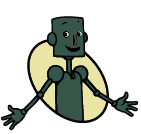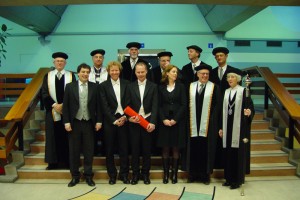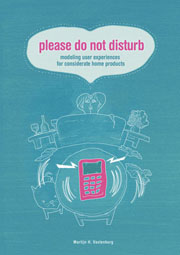Contact information
Martijn Vastenburg no longer works at Delft University of Technology.
He can now be reached at www.connectedcare.nl.
Contact details:
e-mail: m.h.vastenburg@connectedcare.nl
phone: +31-85-773 9903
Short bio
Martijn Vastenburg worked at Delft University of Technology from 2002 to 2012. As part of the Medisign research staff, Martijn coordinated the TU Delft activities in the Design for Wellbeing project, he supervised MSc projects, was involved in education, and contributed to research acquisition and valorisation. With a background in Computer Science (MSc) and Industrial Design Engineering (PhD), his research focuses on design-methodologies and field evaluation in the areas of ambient assisted living and care. Martijn was co-promotor of Thomas Visser, and chaired graduation projects.
Research themes:
• design and evaluation of ambient assisted living products and services
• designing for social groups
• designing for seniors
• motivational and persuasive interfaces
• activity-awareness, routine-awareness, adaptive products
• modeling user experiences
Application domains:
• ambient assisted living
• sustainable living (e.g., stimulating energy preservation)
• home automation and communication
ConnectedCare: SBIR (2011)
A 25k valorisation grant has been awarded by STW in June 2011 to create a business plan and build a demonstrator for the ConnectedCare concept. ConnectedCare is a groupware web service for voluntary caregivers.
Pictorial Mood Reporting Instrument
 |
A pictorial mood reporting instrument is under development. Version 1 has been validated, and the results have been presented at CHI 2011 as work-in-progress. Version 2 is now being validated. |
Design for Wellbeing project (2009-2012)
A 1-million-euro grant has been awarded by Senter in July 2009 through the IOP IPCR program to the project Design for Wellbeing. The project is a collaboration between Eindhoven University, Delft University, University of Twente, Hogeschool van Amsterdam and a group of industry partners. Research will be linked to three design cases from industry: (1) connecting elderly people and informal caregivers (Isolectra), (2) stimulating physical exercise through social networks (Adidas), and (3) connecting parents and premature babies (Maxima Medisch Centrum).
TU Delft focuses on the development of context-aware experience sampling methods. These methods aim to support product developers in creating new products for social connectedness. Using the sampling methods, developers can collect realistic user feedback in the field more accurately and efficiently. The sampling methods will enable fast design iterations. The Design for Wellbeing project builds on the results from the IOP-MMI project Independent at Home.
Designing with Care workshop (2009)
At the PervasiveHealth 2009 conference in London, Martijn has been co-chairing a workshop on Designing with Care. The workshop focused on how designers of health care systems should consider human values in the design process.
Independent at Home project (2007-2011)
The Independent @ Home project, funded by SenterNovem IOP Mens-Machine Interactie, aims to develop an integrated user interface for task-level control of communication and home automation facilities, instead of function-based integrated systems. The elderly-targeted interface and interaction concepts are being used to create personalized assisted living services that fit into everyday life, in close collaboration with industry and home care service providers, and have been extensively tested in homes of participants.
PhD project (2002-2007)
background
| Professional background | |
| 2009-2012 | Assistant professor, Delft university of Technology, Faculty of Industrial Design Engineering, Social and Contextual Interaction Design Group. Project leader of the Independent at Home project. |
| 2007-2008 | Postdoc, Delft University of Technology, Faculty of Industrial Design Engineering, Social and Contextual Interaction Design group. Project leader of the Independent at Home project. |
| 2002-2006 | Toegevoegd onderzoeker, Delft University of Technology, Faculty of Industrial Design Engineering, Intelligence in Products group. |
| 1999-2002 | HCI developer, project leader, National Aerospace Laboratory NLR, Amsterdam. Applications included computer based training system development, risk analysis application development, and offline flight data analysis concept development. |
| Educational background | |
| 2002-2007 | Ph.D. project on modeling user experiences for considerate home products. |
| 1993-1999 | M.Sc. in Computer Science, Eindhoven University of Technology. Specialization in Technical Applications. Master’s thesis: ‘User Interface Design Patterns’. |






